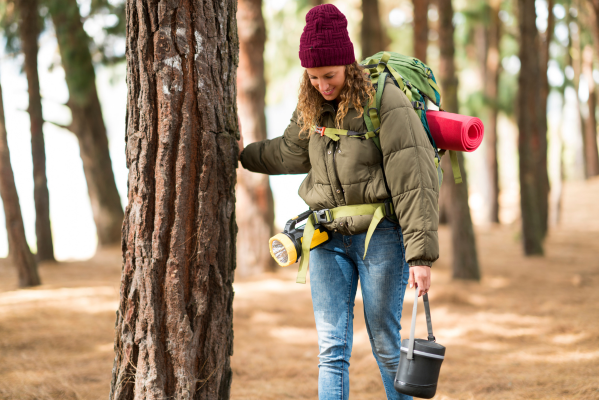Traveling solo as a woman is an empowering experience that allows you to explore the world on your own terms. It offers the freedom to create your own itinerary, immerse yourself in different cultures, and build confidence along the way. However, safety is often a primary concern for women traveling alone. While the world is filled with beautiful places and kind people, being prepared and vigilant is essential to ensure a safe and enjoyable journey.
In this guide, we’ll provide practical, actionable safety tips tailored for solo female travelers. These strategies will help you navigate your adventures with confidence and peace of mind, no matter where your travels take you.

1. Research Your Destination Thoroughly
Knowledge is your first line of defense when it comes to staying safe. Understanding the cultural norms, local customs, and potential risks of your destination will help you prepare for your trip.
Key Tips:
- Know the Safe Areas: Research neighborhoods or districts where tourists commonly stay. Avoid areas known for high crime rates or limited security.
- Understand Local Etiquette: In some countries, modest dress or specific behaviors are expected, especially for women. Adhering to local norms can help you avoid unwanted attention.
- Read Reviews: Platforms like TripAdvisor and Google Reviews often provide insights into accommodations, attractions, and neighborhoods.
Example: Before visiting Morocco, traveler Maria learned that dressing conservatively and avoiding eye contact with street vendors minimized harassment, making her trip more enjoyable.
2. Choose Your Accommodations Wisely
Your accommodation is your home away from home, so it’s important to choose a safe and reliable place to stay.
Key Tips:
- Read Reviews from Solo Female Travelers: Pay attention to reviews specifically mentioning safety and security for solo women.
- Opt for Reputable Options: Choose well-known platforms like Booking.com, Airbnb, or Hostelworld, which often have verified reviews and safety ratings.
- Check for Security Features: Look for accommodations with 24-hour front desk service, secure locks, and well-lit surroundings.
Pro Tip: Many hostels offer female-only dorms, which provide an extra layer of comfort and security.
3. Stay Connected
Staying connected with friends, family, or a trusted contact back home is essential for your safety while traveling solo. Regular updates reassure your loved ones and provide a safety net in case of emergencies.
Key Tips:
- Share Your Itinerary: Let someone back home know your travel plans, including flight details and accommodation addresses.
- Check-In Regularly: Use messaging apps like WhatsApp to send updates about your location and activities.
- Use Location-Sharing Apps: Apps like Find My Friends or Google Maps allow your trusted contacts to know where you are in real-time.
Pro Tip: If you’re heading to a remote area, invest in a satellite phone or a portable Wi-Fi hotspot for consistent connectivity.
4. Be Aware of Your Surroundings
Being observant and aware of your surroundings can prevent many unsafe situations. Trust your instincts and avoid distractions like constantly checking your phone while in public spaces.
Key Tips:
- Blend In: Dress like a local and avoid flashy clothing or expensive accessories that might attract attention.
- Avoid Isolation: Stick to populated and well-lit areas, especially at night.
- Trust Your Gut: If a situation feels uncomfortable or unsafe, leave immediately without second-guessing your instincts.
Example: Traveler Sarah noticed a group of people lingering too close at a train station in Italy. Trusting her instincts, she moved to a crowded area and avoided potential pickpocketing.
5. Secure Your Belongings
Losing your belongings or becoming a victim of theft can turn a dream trip into a nightmare. Keeping your valuables safe is crucial.
Key Tips:
- Invest in Anti-Theft Gear: Use crossbody bags with secure zippers or hidden pockets. Money belts or neck pouches are also great for storing passports and cash.
- Carry Minimal Valuables: Avoid carrying large amounts of cash, and leave expensive jewelry or items at home.
- Backup Important Documents: Keep digital copies of your passport, ID, and travel insurance in your email or cloud storage.
Pro Tip: Use a lockable daypack or backpack to deter opportunistic theft while traveling in crowded areas.
6. Choose Transportation Carefully
Navigating local transportation can be tricky, but making safe choices can reduce risks significantly.
Key Tips:
- Use Reputable Services: Stick to licensed taxis, ride-sharing apps like Uber or Grab, or well-reviewed car services.
- Avoid Late-Night Public Transport: If you’re traveling late, opt for a private ride instead of buses or trains.
- Sit Strategically: In taxis, sit in the back seat and keep your belongings close. If you feel unsafe, ask the driver to stop in a well-lit area and get out.
Example: While in Bangkok, traveler Priya used the Grab app to book rides, avoiding unregulated taxis and ensuring a safer journey.
7. Be Cautious When Meeting New People
One of the joys of solo travel is meeting new people, but it’s important to maintain boundaries and prioritize your safety.
Key Tips:
- Meet in Public Places: Always meet new friends in public settings, like cafes or group tours.
- Avoid Sharing Too Much: Limit the personal details you share, like your accommodation or travel itinerary.
- Have an Exit Plan: If a situation feels uncomfortable, make an excuse to leave, such as needing to meet someone or return to your accommodation.
Pro Tip: Many bars and restaurants recognize the “angel shot” code. If you feel unsafe, discreetly ask the staff for an angel shot, and they’ll assist you.
8. Prepare for Emergencies
Preparation is key to handling emergencies calmly and effectively.
Key Tips:
- Know Local Emergency Numbers: Save local police, ambulance, and embassy contacts in your phone.
- Carry a First Aid Kit: A small kit with basic supplies like band-aids, antiseptic wipes, and pain relievers can be helpful.
- Have Travel Insurance: Ensure your insurance covers medical emergencies, theft, and trip cancellations.
Example: Traveler Lily’s travel insurance covered her medical expenses after an unexpected injury in Peru, saving her thousands of dollars.
Frequently Asked Questions (FAQs)
1. Is solo travel safe for women?
Yes, solo travel can be safe for women with proper precautions. Research your destination, stay alert, and follow basic safety tips to minimize risks.
2. How do I avoid scams as a solo traveler?
Familiarize yourself with common scams in your destination, avoid overly friendly strangers, and always confirm prices for services upfront.
3. Should I avoid traveling solo at night?
While it’s not always necessary to avoid being out at night, stick to well-lit, busy areas, and use trusted transportation options if you’re traveling after dark.
4. What should I do if I feel unsafe?
Remove yourself from the situation immediately, seek help from trusted individuals (such as hotel staff or police), and contact someone you trust.
5. How can I stay connected while traveling abroad?
Buy a local SIM card or portable Wi-Fi device, and use apps like WhatsApp or Skype to stay in touch with friends and family.
Conclusion
Solo travel as a woman is a liberating and rewarding experience, but it’s important to prioritize your safety along the way. By researching your destination, staying vigilant, and trusting your instincts, you can navigate the world with confidence. Remember, preparation is the key to a safe and enjoyable journey.
So pack your bags, stay smart, and embark on the adventure of a lifetime. The world is waiting for you—go explore it safely and fearlessly!

